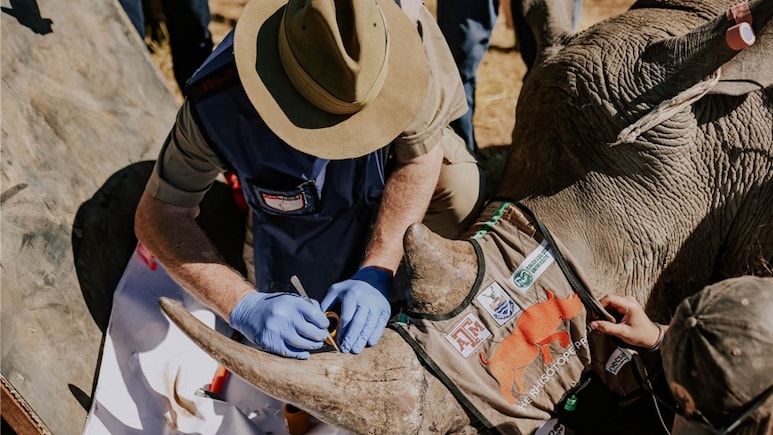
- University of the Witwatersrand injects rhino horns with radioactive material to combat poaching
- The Rhisotope Project has approval after six years of research proving safety for rhinos
- The project is backed by the International Atomic Energy Agency and uses nuclear detection systems
To combat poaching and wildlife trafficking, a South African university has begun injecting radioactive material into the horns of the rhinos. Dubbed the 'Rhisotope Project', scientists at the University of the Witwatersrand said the process is harmless to rhinos and will allow the authorities to detect smuggled horns as they are transported across the world.
The scientists received operational approval for the project on Friday (Aug 1) after conducting intensive research and testing for the last six years.
"We have demonstrated, beyond scientific doubt, that the process is completely safe for the animal and effective in making the horn detectable through international customs nuclear security systems," said Wits University Professor James Larkin, who is also the Chief Scientific Officer of the Rhisotope Project.
The project has received support from the International Atomic Energy Agency (IAEA), with five rhinos injected with the radioactive isotopes in the first batch. The researchers are hopeful that it will be the start of a mass injection drive.
"This project exemplifies how nuclear science can be applied in novel ways to address global challenges. By leveraging existing nuclear security infrastructure, we can help protect one of the world's most iconic and endangered species," said IAEA Director General Rafael Mariano Grossi.
Also Read | World's First AI-Powered Robotic Massage Experience Threatens Therapists' Jobs
Rhino population
For the pilot study, 20 rhinos were injected with the radioactive material last year, which proved that it was not harmful to the animals.
"Using a technique known as biological dosimetry, researchers cultured blood samples and examined the formation of micronuclei in white blood cells, a proven indicator of cellular damage," the university said.
Additionally, the tests also confirmed that individual horns could be detected inside full 40-foot shipping containers.
Private and public rhino owners and conservation authorities have been urged to approach the university to have their rhinos injected.
South Africa is home to the world's largest population of rhinos. However, in the last decade, it has lost over 10,000 rhinos to poaching. In the first quarter of 2025, 103 rhinos were poached, as per the data by the South African Ministry of Forestry, Fisheries and the Environment.
As per the International Union for Conservation of Nature, the global rhino population stood at around 500,000 at the beginning of the 20th century, but has now declined to around 27,000
Track Latest News Live on NDTV.com and get news updates from India and around the world

